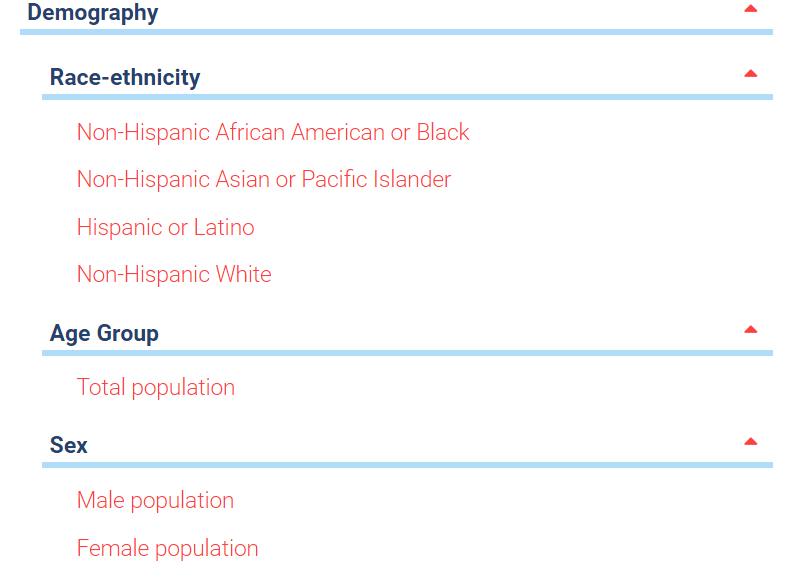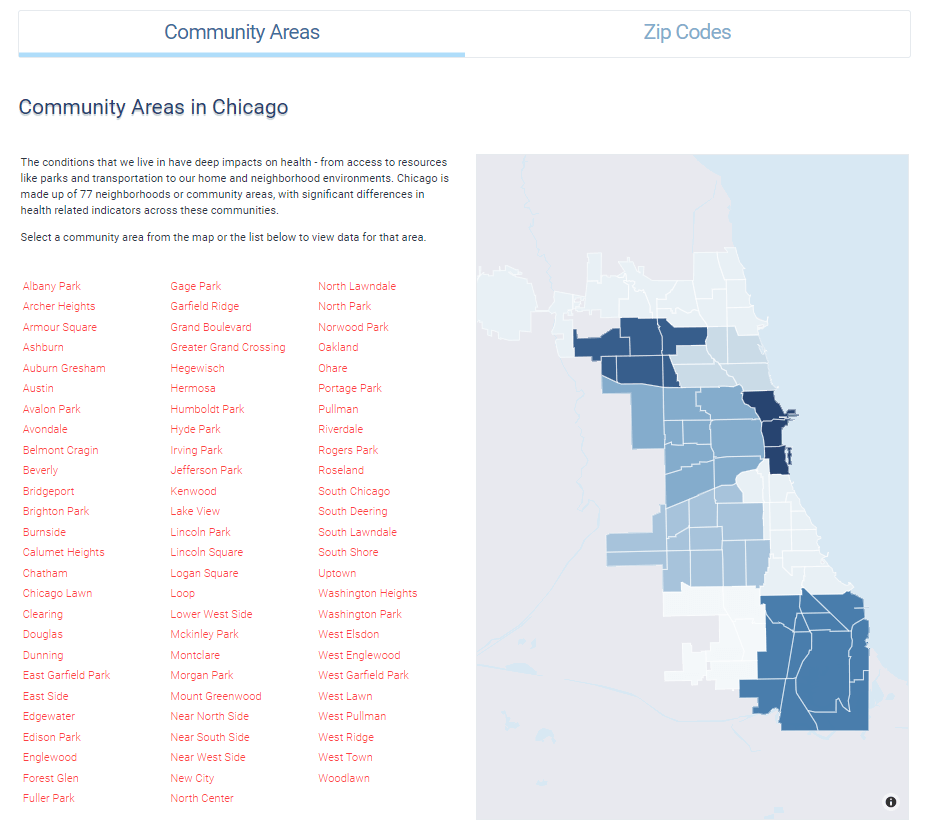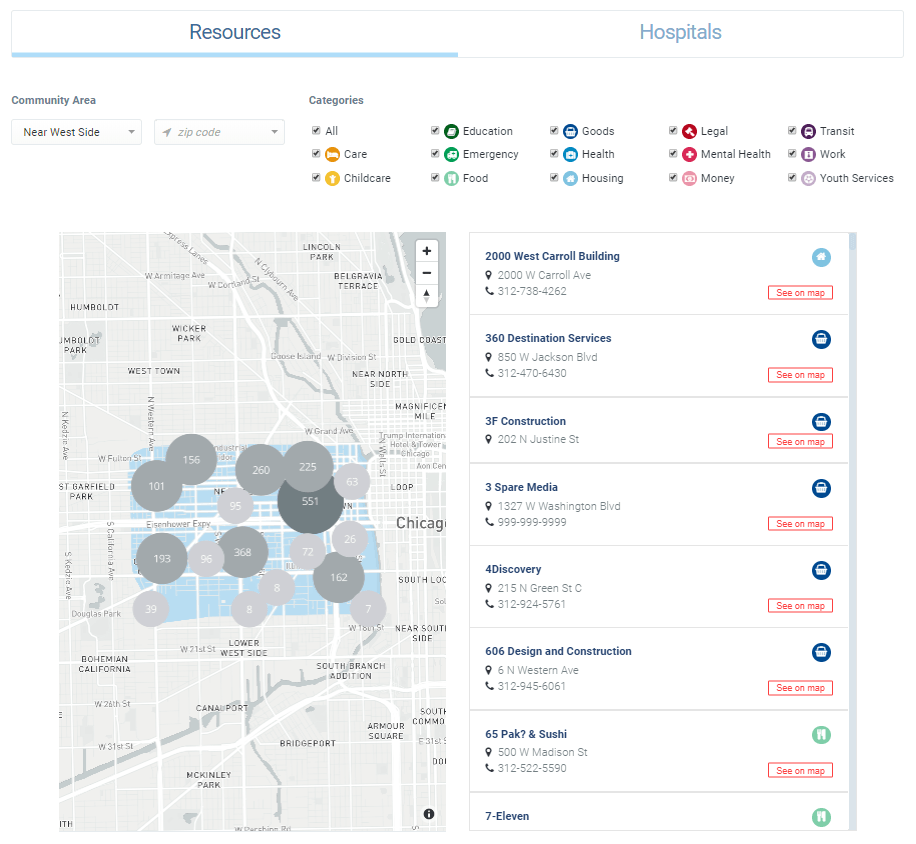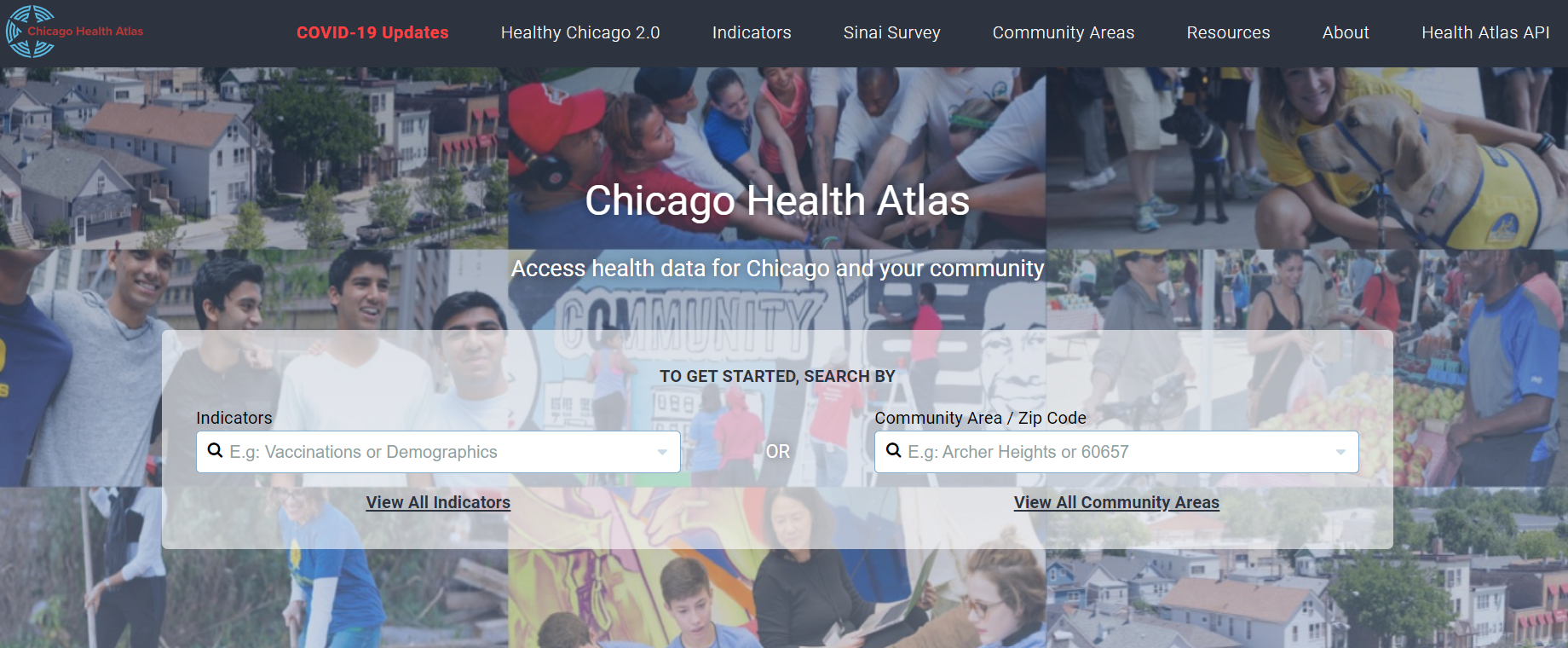Chicago Health Atlas: Using Data to Understand COVID-19
Even as COVID-19 turns our work and
lives upside down, City Tech Collaborative’s commitment to accelerating
technology-enabled solutions to make cities happier, healthier, and more
productive is stronger than ever. During this time of uncertainty, the Chicago Health Atlas
serves as a data resource to those analyzing
and combating the pandemic; with data sets and street-level resource maps on
various health and wellness indicators, the Chicago Health Atlas can help
community organizations understand problems pressing their
neighborhoods and enable dynamic programming responses.
The
Chicago Health Atlas includes information on Chicago’s 77 community areas and
over 160 health indicators such as demography, clinical care, social and economic
factors, health behaviors, mortality, and morbidity. With data maps,
charts, and tables, the Atlas strives to equip communities with health-related
data that is easy to access, understand, and drive future actions. The wide
range of data available is helping organizations understand the interaction of
social and environmental factors and health outcomes in their specific
neighborhoods.
Use the Chicago Health Atlas to Identify Trends in Your Neighborhood
Community organizations, service providers, and public health stakeholders are currently using the Chicago Health Atlas to inform academic research, support grant applications, identify underserved areas, validate emerging health concerns, make funding and resource distribution decisions, and deploy new programs. Between March 13 through April 4, 2020, the Atlas saw 1,964 new users visit 2,479 unique webpages on the tool.
Health organizations are racing to understand how health and wellness factors impact the spread and severity of COVID-19. With black Chicagoans dying from the coronavirus at a rate nearly six times greater than white residents
, more data and research are needed to fully understand the pandemic and disparities that exacerbate health inequality. The Chicago Health Atlas serves as a resource to access and understand data that can be linked to COVID-19 trends and outcomes, including topics organized by age, gender, race-ethnicity, and economic hardship. The Atlas also outlines trends over time and even maps the data to see differences across communities.
Explore topics by health indicators:
Explore health and wellness indicators by community area:
Explore resource maps by neighborhood:
In addition to the Atlas’ existing resources, City Tech has created a new tab that links to current data, information, and resources on Chicago’s COVID-19 response on the top left of the homepage.
City Tech's Response
City Tech is working to keep the Chicago Health Atlas as relevant as possible to those on the frontlines of the crisis. We are:
- Ensuring people working directly with the crisis know about the Atlas as a resource and the support City Tech can provide.
- Reaching out to those directly addressing COVID-19 to see what additional data would be helpful in their decision-making and planning processes.
- Adding additional data and relevant links to resources and information.
- Continuing to take steps to develop a health and wellness analytics tool to expand on the Chicago Health Atlas, including recently holding a roundtable with local community organizations to assess needs.
Leverage the Chicago Health Atlas for Current and Future Challenges
The Chicago Health Atlas strives to offer a complete picture of how different factors interact in specific communities. Building our data is key to expanding an important resource. City Tech is seeking to add additional data sets to the Atlas that, when combined with exiting data sets, allow users to create a picture and tell a story around their health and wellness issues to influence policy, programming, and service provision.
Understand the Health Atlas:
Connect with City Tech to learn about the resources available through the Chicago Health Atlas and how it can advance your health services and advocacy mission. City Tech supports organizations through presentations, briefings, and other opportunities to understand and utilize the Atlas.
Explore Your Community:
Access data through the open application programming interface (API) and download maps, charts, and tables to support grant applications, community meetings, academic research, and more.
Expand Our Reach:
Contribute data to the Chicago Health Atlas to expand City Tech and our partners’ understanding of the social determinants of health. The Partnership Opportunity Fund
is available to help cover the costs of preparing and adding data to the Atlas.
Reach out to Collaborate@CityTech.org
to learn how City Tech and the Chicago Health Atlas can expand your organization’s capacity to address challenges through data.
About City Tech Collaborative (City Tech):
City Tech is an urban solutions accelerator that tackles problems too big for any single sector or organization to solve alone. City Tech’s work uses IoT sensing networks, advanced analytics, and urban design to create scalable, market ready solutions. Current initiatives address advanced mobility, healthy cities, connected construction, and emerging growth opportunities. City Tech was born and raised in Chicago, and every city is a potential partner. Visit www.CityTech.organd follow us on Twitter
and LinkedIn.
About the Chicago Health Atlas:
The Chicago Health Atlas is a community health data resource that residents, community organizations, and public health stakeholders can easily search, analyze, and download neighborhood-level health data for the City of Chicago. A City Tech solution, the Chicago Health Atlas was initially developed in 2012 by the Smart Chicago Collaborative and the Chicago Department of Public Health (CDPH) with funding from the Otho S.A. Sprague Memorial Institute. Explore the Chicago Health Atlas by visiting www.ChicagoHealthAtlas.org.
About the Author: Leslie Durr is the Manager of Community Solution Development at City Tech Collaborative. Prior to joining City Tech in the Fall of 2017 she was the Project Coordinator for the Health Atlas, Youth Led Tech, Smart Health Centers and the Creative Career Fair at the Smart Chicago Collaborative. Leslie has a bachelor’s degree in Mass Communications and a master’s degree in Human Service Administration. You can follow her on Twitter @SmartChiLeslie.




